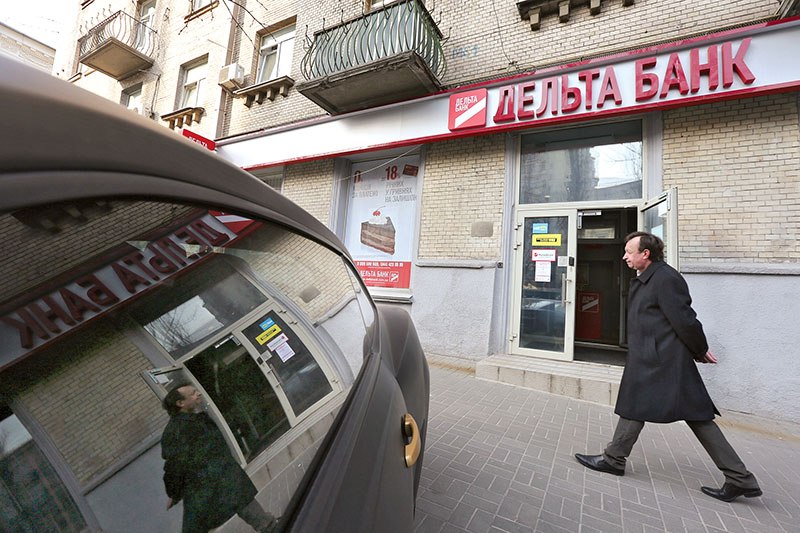A big shakeout is coming in the banking sector that will separate the good from the bad and force bankers to take more legal responsibility for insolvencies.
In January, Leonid Antonenko joined the National Bank of Ukraine as director of the registration and licensing department. And he has had to move quickly in a whirlwind and decisive few months, with International Monetary Fund demands looming fast and hard.
Over a short period of time, Antonenko has had to tackle such complex issues as determining murky bank ownership structures, increasing the liability of bank owners and purging the banking system of toxic assets.
On March 6, a law was passed, largely attributed to Antonenko, which increased the liability of bank owners and people closely associated with a bank’s management.
“We were very short on time as the law was one of the conditions for IMF credit,” Antonenko says.
Also short of human resources for research and development, Antonenko and his team used earlier precedents, focusing on Turkish reforms after its own 2001 banking crisis as a guide.
The law met the IMF deadline and the fund, along with the World Bank, have since advised Antonenko and NBU on how to build and improve upon it.
Still, Antoneko says, cooperation can be complicated with these international banks. It is not always possible to tie European standards to Ukrainian reality. He admits that the law is not perfect, but believes it does go a long way in addressing important bank ownership and liability issues.
“It is not a secret that some banks do not have all of their owners on paper,” he says. “My department is aimed at changing this situation.”
It is also typical for Ukraine to have 11 or 12 equivalent shareholders in a bank’s corporate structure. But Antonenko says that this is not tenable. “It is rare in big businesses, and especially in banking, to have even five equivalent partners,” Antonenko says. “Such a system is very unsustainable.”
Determining liability within a Ukrainian bank’s management is also another difficult problem. To avoid accountability, real managers create quasi-management structures and positions, although everybody within the bank understands who is really giving the orders. Antonenko says the National Bank is also examining this problem.
The NBU is also looking into the touchy issue of what constitutes having “significant influence” within a bank. Ukrainian law addresses this topic, but no guiding precedent or parameters have yet been established.

Delta Bank was among the biggest ones declared insolvent this year. Now owners will bear legal responsibility for the financial performance. (Volodymyr Petrov)
“As long as a person was elected to a board or occupies a quasi-management position, even if he or she has an insignificant number of shares, such a person can be considered to have enough influence to be qualified as a ‘major stakeholder,’” Antonenko says. “This is another direction in which we plan to work.”
In an oversight that Antonenko calls absurd, legislation required the disclosure of limited-liability companies’ 20 biggest shareholders – but not for banks. The recently adopted law fixes this. Antonenko says that the National Bank has now gone even further and has obliged banks to disclose their entire ownership structures within the next two months.
Antonenko emphasizes that the new ownership and liability regulations are not meant to be punitive, but to bring better transparency and stability. “The banking sector is a very sensitive matter,” he says. “It is regulated by accurate genuine signals. We do not need to wallop the sector. This is not a raid … When people acquire this understanding, the situation will become normal.”
Antonenko believes that with the introduction of new equal and transparency standards for all banks, only a fraction of the existing banks will remain in a sector that now seems saturated.
Another chief priority, Antonenko says, is revisiting what is meant by a “public company” in Ukraine. “Recently I dealt with the documents of a bank, which has 60,000 shareholders with less than 0.1% stake, while one major shareholder has 99%. This is a structure of public companies in Ukraine. While we have to deal with such ‘public companies,’ we will not build a stock market.”
Antonenko, who was legal counsel at Sayenko & Kharenko before joining NBU, is also chair of the Corporate Law and Stock Market Committee of the Ukrainian Bar Association.
